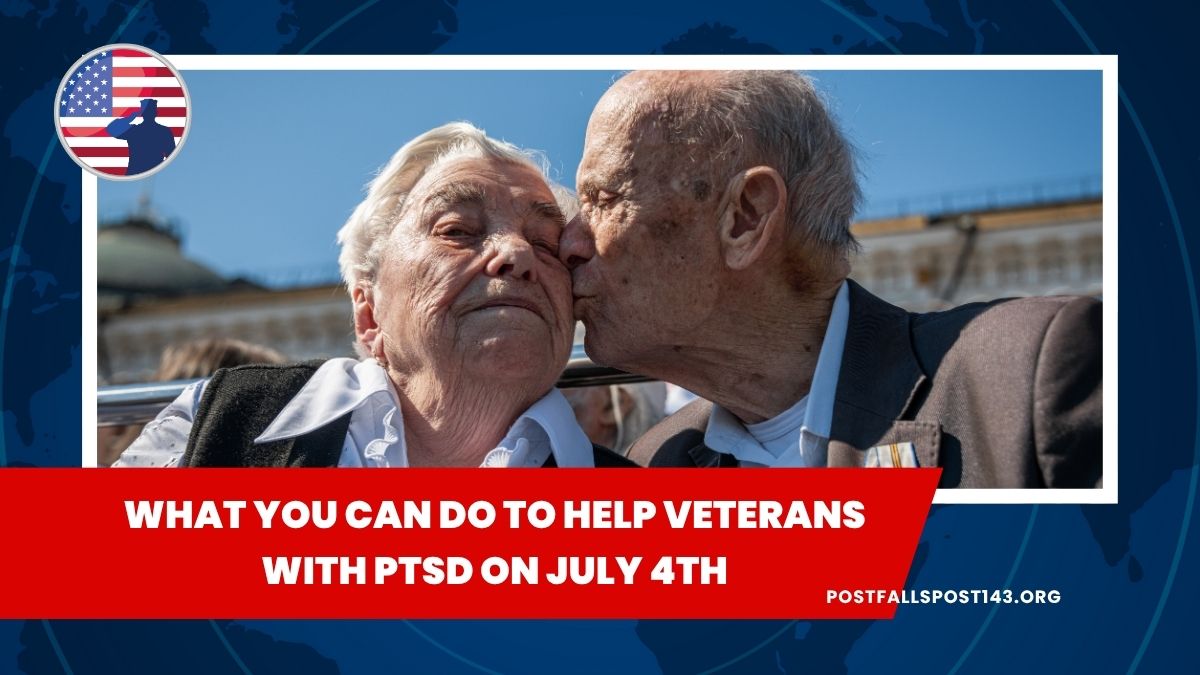The Fourth of July is a day of celebration in the USA—filled with fireworks, parades, and gatherings.
However, for many veterans coping with PTSD, sudden loud noises and unpredictable events can trigger flashbacks, anxiety, and extreme stress.
Here’s how we can responsibly celebrate while supporting our heroes.
Understanding the Stakes
| Metric | Value |
|---|---|
| Veterans in VA care with PTSD | ~14% men, ~24% women |
| PTSD among all veterans | ~7% lifetime |
| Combat-zone veteran PTSD (men) | ~12–17% |
| Nationwide PTSD prevalence | ~5% (≈13 million Americans) |
- In 2024, among 5.8 million VA‑using veterans, ~14% of men and ~24% of women were diagnosed with PTSD—double the civilian rate .
- Overall, about 7% of U.S. veterans experience PTSD sometime in their lives .
- Combat-related PTSD rates hover between 12–17% for male veterans .
- Nationwide, roughly 5% of the U.S. population (≈13 million people) live with PTSD annually .
Why July 4th Can Be Challenging
- Fireworks reach up to 140 dB, similar to gunfire. Sudden loud noises can trigger intense anxiety or flashbacks.
- Many veterans report being overwhelmed, even in controlled settings.
- PTSD often co-occurs with mood disorders, substance abuse, and sleep problems, making support even more urgent .
Ways to Support Veterans This Independence Day
1. Advance Communication
- Inform neighbors or guests with a simple note: “We will have fireworks at 9 pm.” This helps veterans prepare emotionally .
2. Adjust Fireworks Practices
- Limit fireworks to actual Independence Day evening; avoid prolonging usage before or after the holiday.
- Consider quieter alternatives, like drone or laser shows, already used in cities like Aspen and Lincoln City .
3. Create Safe Zones
- Offer spaces away from fireworks where veterans can retreat if overwhelmed.
- Provide noise-canceling headphones, earplugs, or white noise machines.
4. Teach Coping Techniques
- Introduce mindfulness, breathing exercises, or grounding techniques, shown to reduce acute anxiety .
- Encourage app-based tools like PTSD Coach—free and VA-endorsed .
5. Offer Emotional & Crisis Support
- Let veterans know they have your support and understanding .
- Highlight the Veterans Crisis Line (dial 988, then press 1; plus text/chat options)—available 24/7 .
6. Promote Professional Resources
- Encourage use of VA resources, such as Warrior Care Network, Vetsprevail, and SoldierStrong’s BraveMind .
- These programs offer structured therapy, including CBT, exposure therapy, VR, and peer coaching.
What Families & Communities Can Do
- Educate guests by briefly sharing why fireworks can be triggering—without overexposing the veteran’s trauma.
- Invite participation in quieter celebration alternatives—picnics, parades, or community concerts.
- Follow-up post-4th—check in with veterans after the event: “How are you feeling today?” .
Supporting veterans with PTSD during the Fourth of July isn’t about dampening the spirit—it’s about respect, awareness, and inclusion.
Simple steps like giving advance us a note, offering quiet retreats, teaching coping methods, and sharing resources help turn Independence Day into both a celebration and a gesture of solidarity.
FAQs
How can I tell if fireworks are triggering my veteran friend?
Watch for signs like stress, flinching, sudden silence, or withdrawal. Ask gently: “Do you want to take a break?”
Can PTSD get worse around holidays like the Fourth of July?
Yes. Intense triggers may worsen anxiety or sleep issues temporarily, but with proper coping tools and support, symptoms can be managed.
Where can a veteran get immediate help on July 4th?
They can call the Veterans Crisis Line at 988→1, text 838255, or chat online—available 24/7.

